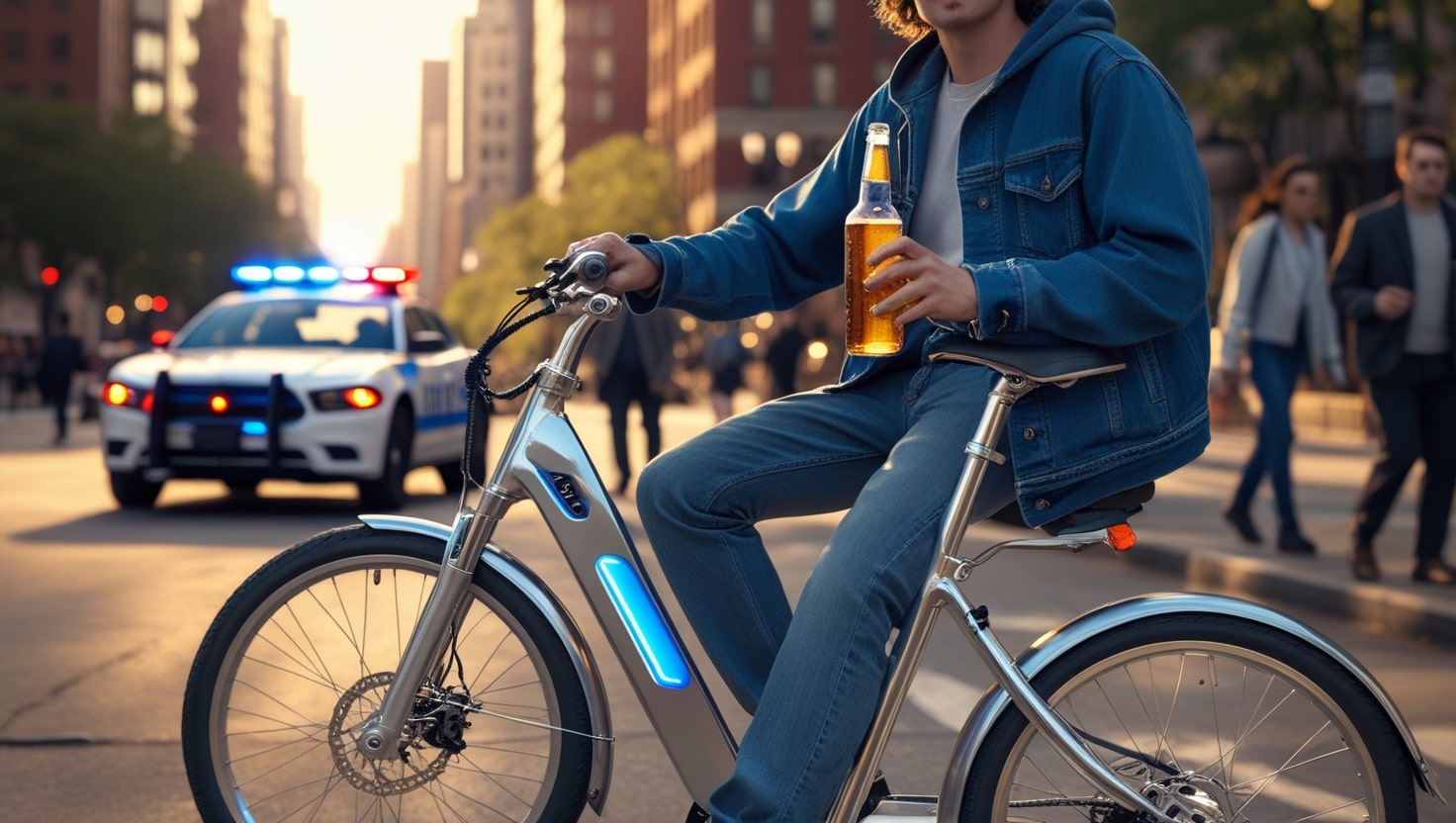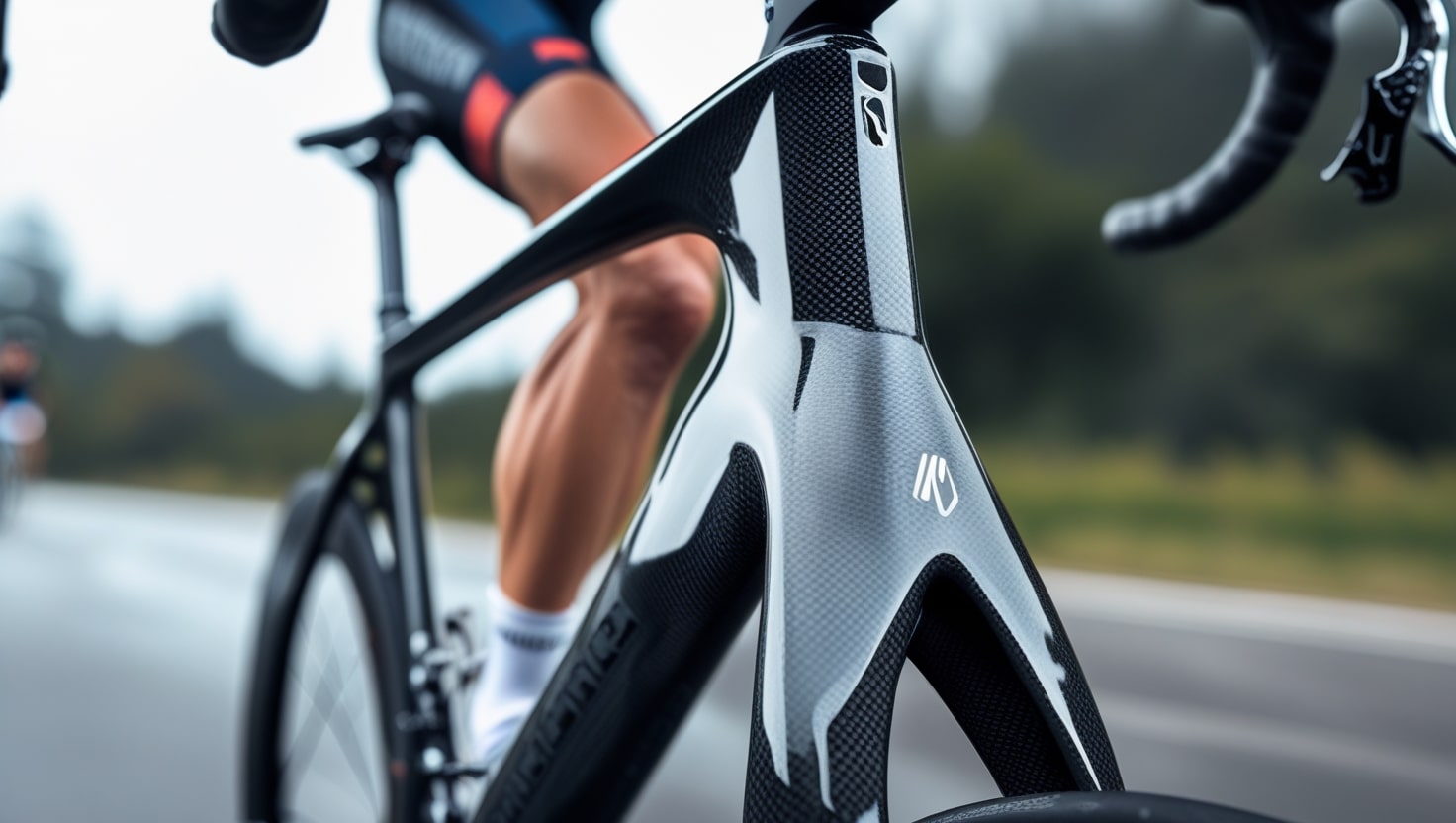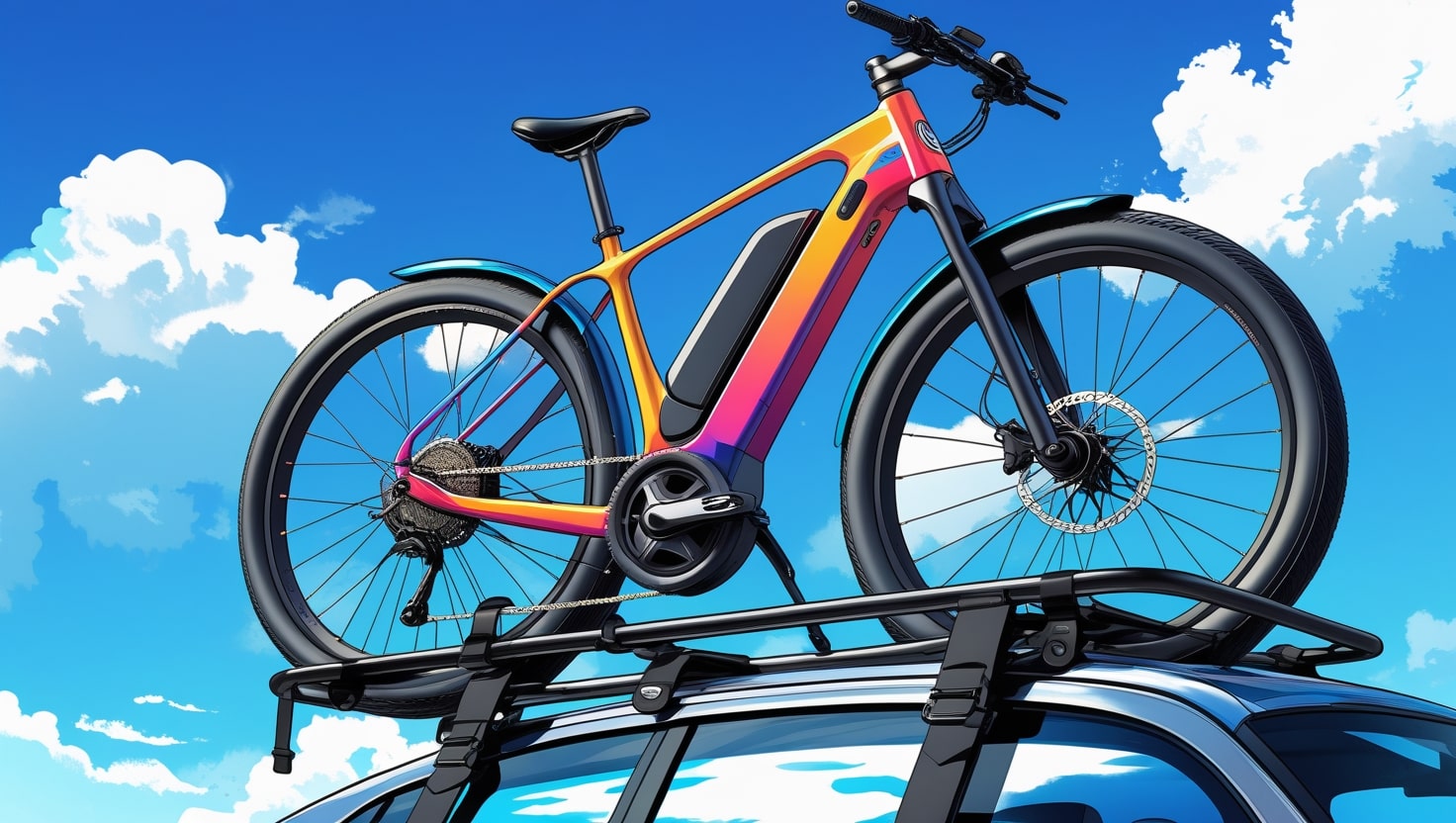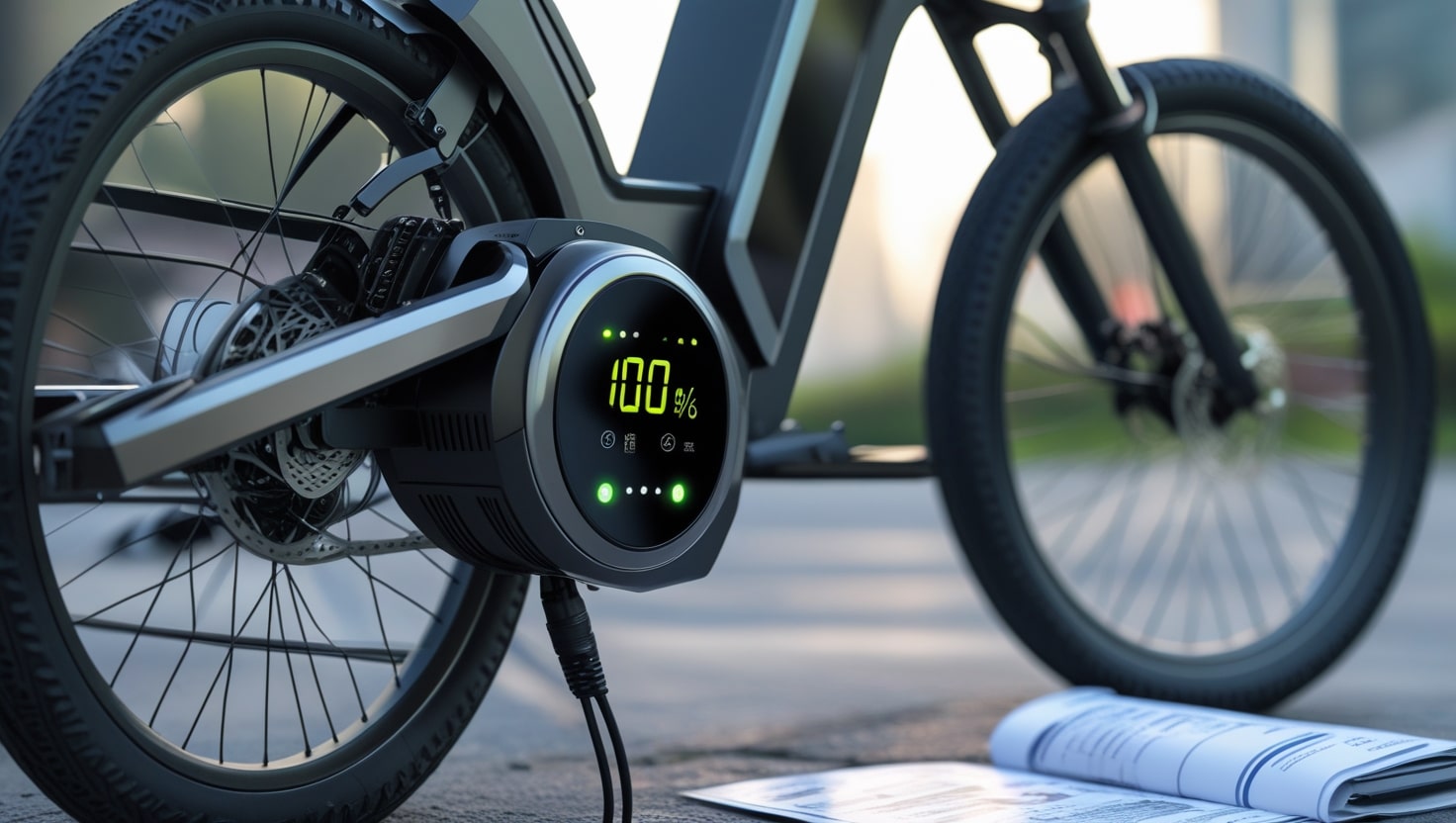If you’ve been riding for a while, you’ll notice your motorcycle starting to feel a bit slower when trying to stop. You might even feel extra effort during wheeling or parking. From my experience, this often means it’s time to clean your brakes. Keeping your brakes clean is extremely important because they’re the most critical safety feature on your bike.
Fortunately, brake maintenance is pretty easy. Today, I’ll share practical advice and a comprehensive yet straightforward overview of how to clean motorcycle brakes, drawing from tips provided by the expert team at ChiceBike.
Why Keeping Your Brakes Clean is So Important
As someone who’s been around motorcycles for years, I’ve noticed that many motorcycle riders tend to overlook regular brake cleaning, unaware that they’re allowing unseen residue build-up inside their brake system. Sure, your bike might look clean externally, but the real issue hides within the confines of the braking mechanism, particularly in the calipers. Each time you press the brake lever, the master cylinder pumps brake fluid through the brake lines to the calipers, forcing the pistons outward. This pushes your brake pads firmly against the brake disc, bringing your bike to a safe stop.
However, during everyday use, these essential machine components naturally accrue a layer of dirt, dust, and other residue, gradually leading to decreasing efficiency. This hidden grime can eventually cause clogged calipers and even seized pistons, severely impacting your motorcycle’s ability to brake smoothly. If you’ve ever noticed your motorcycle brakes becoming less responsive, that’s a clear sign they’re experiencing excessive wear and tear from internal buildup.
Taking the time for regular checking and cleaning not only improves your overall braking performance, but also significantly enhances the longevity of your braking components. From personal experience, making brake maintenance a habit can help you save money over time by preventing expensive repairs. Most importantly, it ensures the safest possible riding experience, making regular brake checks one of the most important habits for every rider.
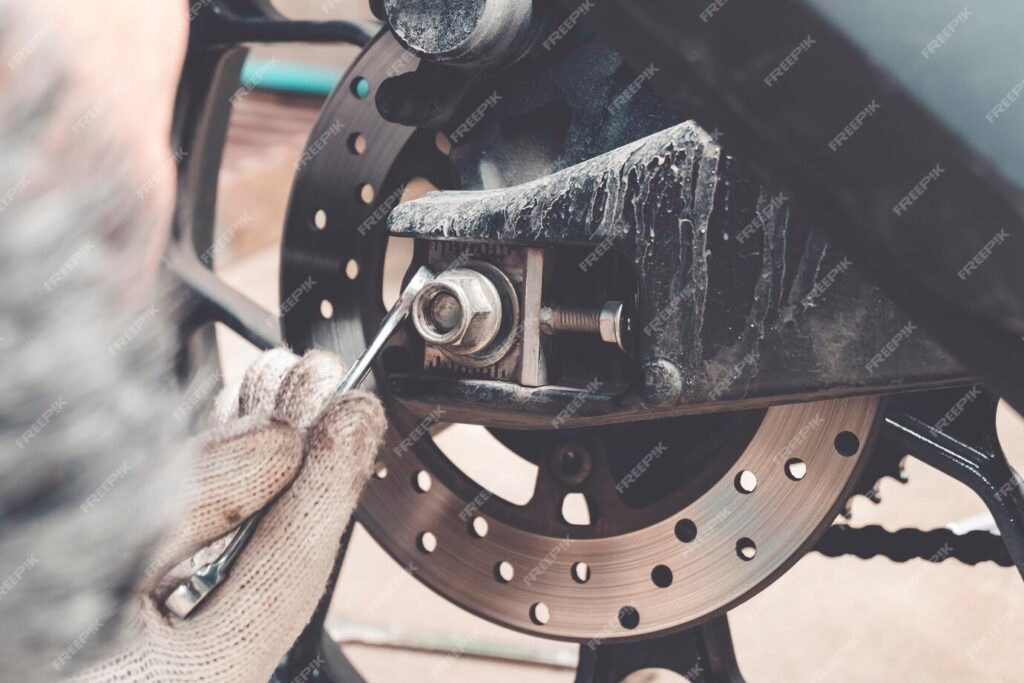
How Often Should You Clean Your Brakes?
In my experience, how often you should clean your motorcycle brakes really depends on the environment where you’re riding. If you’re someone who hits hilly trails or rides on dusty terrain regularly, your brakes need cleaning more frequently compared to riding mostly on flat, urban roads.
As a general rule, I recommend giving your brakes a thorough clean every 5000-6000 miles. Another thing I’ve noticed over the years is that brakes can deteriorate through lack of use. So, if your bike sits idle in the garage during winter, always give your motorcycle a proper check and clean before heading back onto the road.
Getting Started
Before you jump into cleaning, make sure you have the right gear handy. Start with a reliable brake cleaner—I usually keep two cans around, especially if the bike has been unused for a long time or has accrued heavy muck. You’ll need a sturdy brush as well, to help dislodge any stubborn, resilient grime, especially in harder-to-reach areas around the calipers and brake pads.
After you’ve sprayed everything down, grab a clean cloth to thoroughly wipe away any leftover residue. Lastly, don’t forget the required tools to carefully remove your pads and calipers, ensuring a thorough job every time.
Related: How to stop squeaky brakes on a bike
How Best to Clean Your Brakes
Once you’re ready to begin the cleaning process, set your bike up securely in a stand inside a well-ventilated garage. From personal experience, the ground beneath your motorcycle will likely become a bit of a mess, so having a bucket of hot soapy water nearby helps quickly clean any grime or spills off the floor.
Next, carefully remove the brake components and spray them generously with the brake cleaner. After you’ve thoroughly sprayed each part, use your cloth to wipe away the loose dirt. Sometimes, you’ll encounter tougher buildup—that’s when a wire brush becomes handy.
For smaller areas, I usually wrap the cloth around my finger and gently rub until everything is properly cleaned. When finished, put back together your motorcycle brakes carefully and don’t forget to test that your brakes are working properly before riding again.
Recommended Tools to Safely Clean Brake Rotors and Calipers
Over a long time working on motorcycles, I’ve found that simple household items often do the best job when cleaning your motorcycle’s brake components without risking brake pad damage or reduced performance. My go-to method involves a mix of dish soap and warm water, applied with a Scotch brite sponge.
For tougher grime, use a small nylon brush—something about toothbrush size works great—and gently remove stubborn dirt. If the rotors need extra attention, gently sand them with 600-grit sandpaper, being careful not to damage the brake pads. This approach safely keeps your brakes performing smoothly.
Related: Coaster Brakes vs Hand Brakes
How do I clean my motorcycle rotors?
- First, carefully remove the rotor from your motorcycle’s wheel assembly; this step makes the process much easier.
- Next, using a Scotch brite sponge or pad, thoroughly scrub the rotor’s surface with warm soapy water to loosen any grime that’s built up. From my experience, there’s usually some stubborn grime that’s really stuck, so take your time here.
- After scrubbing, dry off the rotor thoroughly with a clean towel—there’s no rinse with clean water needed at this point.
- Then, using 600-grit sandpaper, gently scuff both sides of the rotor. Be careful here—just lightly scuff to avoid causing damage. Once done, give it a final rinse and dry again completely.
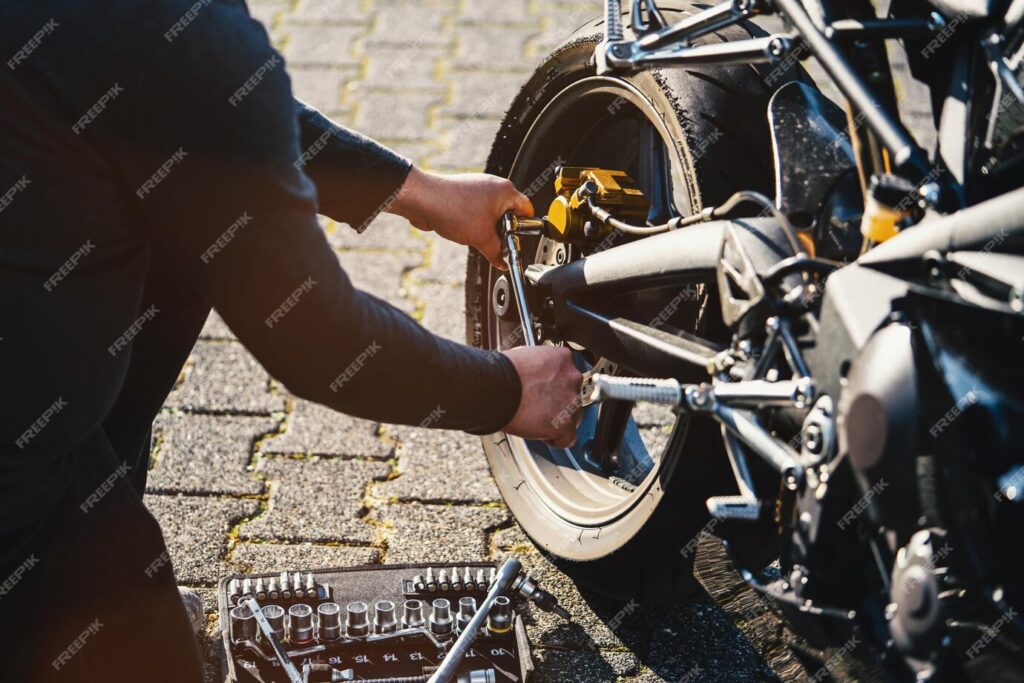
How do I clean my motorcycle calipers?
- First, carefully disconnect your caliper from the brake lines and remove it from the wheel assembly. Make sure to also take out the brake pads before you start washing.
- Plug or cover the brake line inlet tightly to stop any water from entering and mixing with your brake fluid—trust me, you don’t want contamination there.
- Next, use a small nylon brush with warm soapy water to thoroughly scrub the entire caliper, especially focusing on the pistons. I usually keep a piece of scotch brite handy for tougher grime on harder-to-reach surfaces.
- When everything looks properly clean, give the caliper and the brake pins a final rinse with clean water, then towel dry thoroughly to prevent rust.
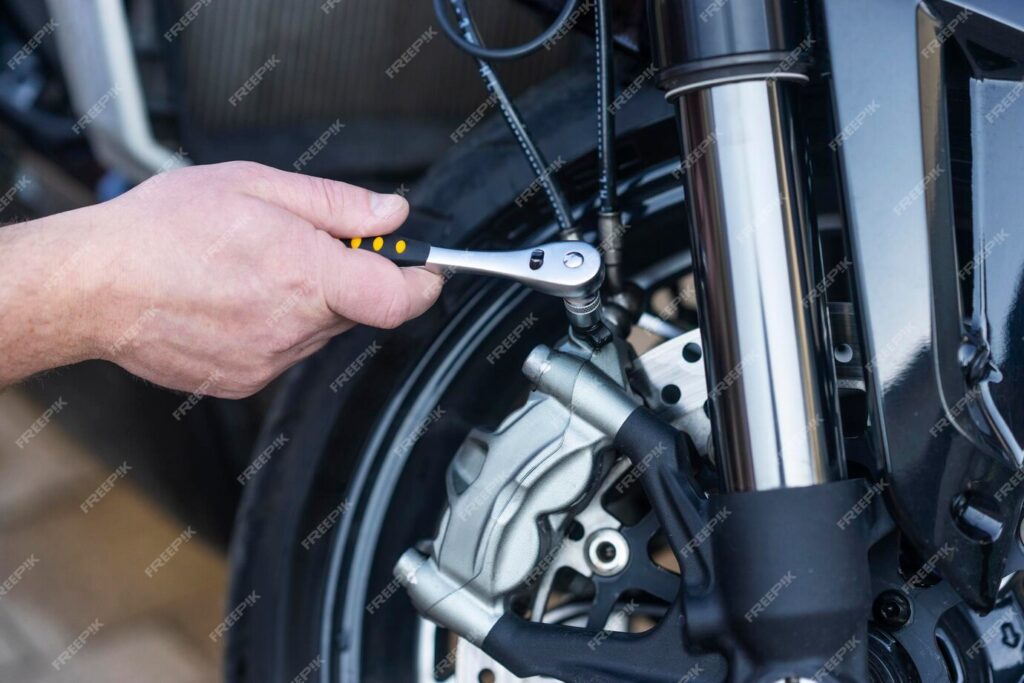
Related: What Goes On at Sturgis Bike Rally


